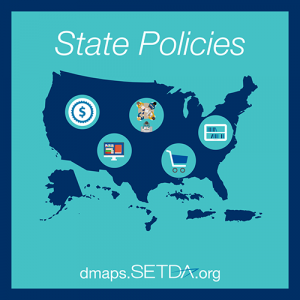Priorities
Professional Learning
Methods
Educators typically participate in formal and self-directed professional learning opportunities. Formal opportunities include university level courses either online, in-person or blended, webinars, workshops, district or school led communities of practice, and coaching/mentoring partnerships. Self-directed informal experiences may include participating in social media feeds or reading a book or paper to support the teaching experience. Informal, job embedded learning opportunities such as discussions with fellow colleagues, sharing lessons plans or requesting feedback from students can also support an educator’s learning experiences.
Coaches
Instructional technology/digital learning facilitators or coaches have proven to be valuable in providing support to educators as they shift to new instructional practices. This direct one-on-one and small group instructional assistance can show teachers how to modify and deliver their lessons to take advantage of new technology resources. To be effective, districts should consider assigning at least one expert to each school (depending upon size) in order to accelerate the adoption of new forms of instruction and assessment.
Micro-Credentials
Micro-credentials is a competency-based approach to provide professional development opportunities for educators.
Communities of Practice (COP)
Online, face-to-face and hybrid models of communities of practice provide educators with the ability to connect with fellow educators both asynchronously and in real-time to share resources, successes and challenges. Teachers and administrators benefit from the ongoing support available through these communities as they grow and expand to support the diverse needs of educators. Communities may be school, district or state based and/or connect teachers of similar content areas or grade levels nationally or internationally. Communities of practice differ from educators’ online courses. Online courses are more structured, typically requiring specific content and activities within a specific time period. Many of them do contain elements of a CoP to facilitate interaction and support among participants.
Personalized Learning Networks
Online tools and social media have sparked new opportunities for educators to participate in self-selected, professional learning opportunities and to build their personalized learning networks (PLN) and to collaborate with peers. PLNs may include professional learning groups (online and in-person), COPs, listservs, blog subscriptions, newsfeeds and social media tool such as Facebook, Twitter, Instagram, Pintrest, Ning and Edmodo.
-

DMAPS: Digital Instructional Materials Acquisition Policies for States
Updated in 2019 (originally launched in October 2015), the goal of the DMAPS portal is to provide a clear picture of each state’s instructional materials policies and practices to help encourage increased implementation of digital learning. Educators, policy makers and private sector executives have the opportunity to learn about state policies and practices related to […]
